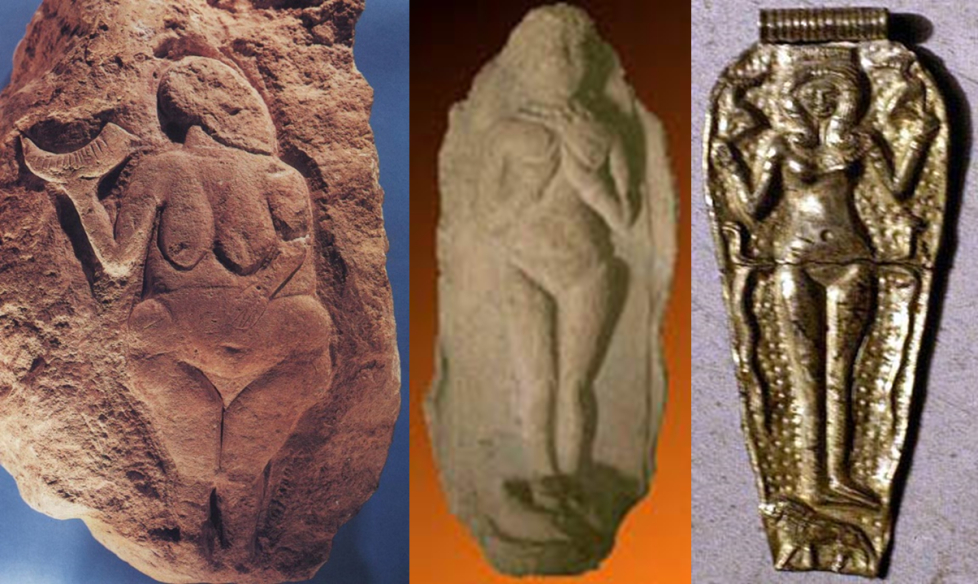金星の庭園に戻ろう(1)
ダービー・コステロ著 咲耶まゆみ訳 By Darby Costello Translated by Mayumi Sakuya
English text to follow.
6世紀の初め、イタリアのパドア市に住む司教が花婿と花嫁に詩を綴った。詩に登場するキューピッドは、実り豊かな庭園にいる美しい母親のビーナスを訪ね、「『古い帝国』」は破れ、世界は『不感症の処女』に取りつかれてしまいました」と訴えた。「立ち上がってください。眠けを覚まして!」と母親に懇願する。
しかし、ビーナスは、「まだ庭園を離れるつもりはありません」と答える。「皆のためにももっと強くなりましょう。誰も女神のことを考えてないときにこそ、女神は力をつけることを民に知らしめるのです」
今日の私たちの世の中では、金星を秘密の庭園に追いやったのは「不感症の処女」ではなく、私たちが抱き続ける不安感や、悲惨なほど過度な忙しさだ。また、もしかしたら、この表面下には、神や女神がかつて体現していた目に見えない力に対する敬意の喪失があるのかもしれない。今では、私たちは互いに、あるいは両親やリーダーたちに、失ってしまった神や女神を体現することを求める。対人関係が苦しみに悩まされるだけでなく、ありのままの世界の美しさを楽しみ、魂を養う喜びを味わう力も劣ってしまう。私たちの住む時代は、物事が他と違うこと、人が他者と違うこと、自分自身が他と違うことを望むことは、病気とされてしまっているように思える。
アストロロジャーとして鑑定をする中で、私は私自身や他人の中にあるこの集合的な苦悩を理解し、意識に上らせるようにしてきた。集合的に浮遊する不安感に浸らせておくと、人や、団体や、社会に対して投影されてしまうことがよくあるからだ。私たちはあまりにも不安定で変わりつつある世界にいる。そのために多くの人たちは危険を感じてしまう。私の多くの鑑定の中では、クライアントと一緒に人生の秘密の庭園のどこにこれらの苦悩、不安、忙しさ、思い、イメージ、気持ちが侵入しているかに気づくための取り組みをする。チャートに示される、金星の贈り物である美しさをしっかりと意識しているか? 人生と取り巻く世の中で喜びと美を高めることのできるように、金星の領域に個人的に関われることをしているか。そして、これはやる価値があるのか、それとも、混乱と苦悩に満ちた世間にありがちな自分勝手な事なのか?
このような質問に答えるためには、惑星金星に関連する神々、つまり、生きた神々がまだ惑星に関連付けられていた時、に帰るとよい。4000年前、メソポタニア人たちは、すでに宵の明星と明けの明星は同じ星であることは知っていた。別の時代では、女神イナンナとイシュタルが金星の神々だった。
先史の星伝説では、これらの女神たちは最高権力を持ち、全てが誰もが女神たちに従った。以下は、3000年以上前にイナンナを讃えた讃美歌だ。
一日の終わりに空が輝く星、偉大なる光で満たされる。
天界に宵の淑女現れ、全ての地の人々は彼女を見上げる。
讃美歌はさらに、「男たちは身を清め、女たちも身を洗い、牛や羊や、大草原、庭、果樹園の全ての生き物、アシ、木々、海、天がみんな女神の命令に従って崇拝した。老婆は女神の祝宴の仕度をした」と謳う。そして、
淑女は地上で英気を養い、シュメールに大きな喜びが訪れる。
青年が最愛の女性と愛しあう。
ずっと後の紀元前8世紀には、ヘーシオドスが、ギリシャの愛の女神であり、私たちの占星学の金星と最も直接的な祖先でもある、アフロディーテについて詩を綴っている。古代ギリシャの叙事詩人は、アフロディーテは非常に残忍な殺人から生まれたと語る。女神の父親ウラヌスは、母親のガイヤ(ウラヌスの妻)にけしかけられた息子のクロヌスに男根を刈り取られた。ウラヌスの男根から湧き立った白い泡が岸に流れ着くと、その中から女神アフロディーテ(「泡から生まれた」という意味)が誕生した。しかしながら、この途方もなく陰鬱な始まりが、素晴らしい何かを生んだのだ。
★ダービー・コステロ先生のセミナ-開催します。 詳細・お申込みは、こちら
2017年11月10日(金夜)「木星と土星のトランジット:日常の取り組みの中で見いだす人生の意味」
2017年11月11日(土)12日(日)「星が導く人生の大切なリレーションシップPart①&②」
Recovering the Garden of Venus (1)
In the early sixth century a bishop from Padua wrote a poem for a bride and groom. In this poem, Cupid went to see his beautiful mother, Venus, in her lush garden, complaining that their ‘old empire’ had been lost, and now ‘cold virginity’ possessed the world. ‘Arise! Shake off your sleep!’ he tells her. But she replies that she will not leave her garden yet; ‘We shall be all the stronger for our rest. Let the nations learn that a goddess grows in power when no one thinks of her.’ *1
In our world today it is not ‘cold virginity’ that has driven Venus into her hidden garden, but our ongoing anxiety and our terrible over-stretched busy-ness. And perhaps, underneath this, a loss of reverence for the invisible powers that the gods and goddesses used to personify. Today we ask each other and/or our parents and leaders to personify the gods and goddesses we have lost. Not only do relationships suffer but also our human capacity to take pleasure, soul nourishing pleasure, in the beauty of the world as it is. The longing for things to be different, people to be different, ourselves to be different, seems to be a disease of the time we live in.
In my consultation practice as an astrologer I have sought to understand this sense of collective distress in myself and in others and to bring it into consciousness rather than be submerged by the communal free floating anxiety, which most often gets projected onto one or another person, group or community. We are in such a precarious, changing world and it feels so unsafe to so many people. A lot of the work I do with clients involves noticing where these distressed, anxious, busy, thoughts, images and feelings invade the private gardens of our lives. Do we pay appropiate attention to the beauty that is Venus’ gift as it shows in our charts? Do we relate personally to the dimension that is her realm in ways that further joy and beauty in our lives and in the world around us? And, is this a thing worth doing, or is it selfish in a world full of such confusion and distress?
To address these questions it is worth returning to the deities associated with the planet Venus – when living deities were still associated with the planets! Four thousand years ago the Mesopotamians already knew that the morning and evening star were the same. At different times the goddesses Inanna and Ishtar were the planet’s deities.
In the star lore of our early history, these goddesses were supremely powerful and everything and everyone responded to them. This hymn to Inanna is over 3,000 years old:
At the end of the day, the Radiant Star, the Great Light that fills the sky,
The Lady of the Evening appears in the heavens.
The people in all the lands lift their eyes to her.
The hymn goes on to say that the men purified themselves and women cleansed themselves; the ox and the sheep and all living creatures of the steppe, gardens, orchards, reeds and trees, oceans and heavens responded to her commands and revered her. Old women prepared a feast for her, and:
The Lady refreshes herself in the land.
There is great joy in Sumer.
The young man makes love with his beloved. *2
Much later, in the eighth c entury B.C.E., when Hesiod wrote of Aphrodite, the Greek Goddess of Love and the most direct ancestress of our astrological Venus, he told us that she was born of a most brutal murder: her father Ouranus had been violently dismembered and killed by his son, Kronos, at the instigation of his mother, Gaia. When the foam of Ouranus’ severed members floated over the sea to the shore, Aphrodite (‘foam-born’), came into being. Yet, this extraordinarily dark beginning gave birth to something wonderful:
Continue to “Recovering the Garden of Venus (2)”
*1 Lewis, Allegory, 1979, p. 78 citing Ennodius, Carm. Lib.I, iv, lines 1-4 (ed. Hartel in Corp. Script. Ecclesiast. Vol. vi, pp. 29-52).
*2 ‘The Lady of the Evening’ in Kramer, Samuel Noah and Diane Wolkstein’s, Inanna, Queen of Heaven and Earth: Her Stories and Hymns from Sumer, (New York: Harper and Rowe, 1983), p. 101.
★Click here for details of Darby Costello‘s Tokyo seminar on 2017 10th(Fri. evening), 11th (Sat) and 12th(Sun).
関連記事
Submit your review | |

